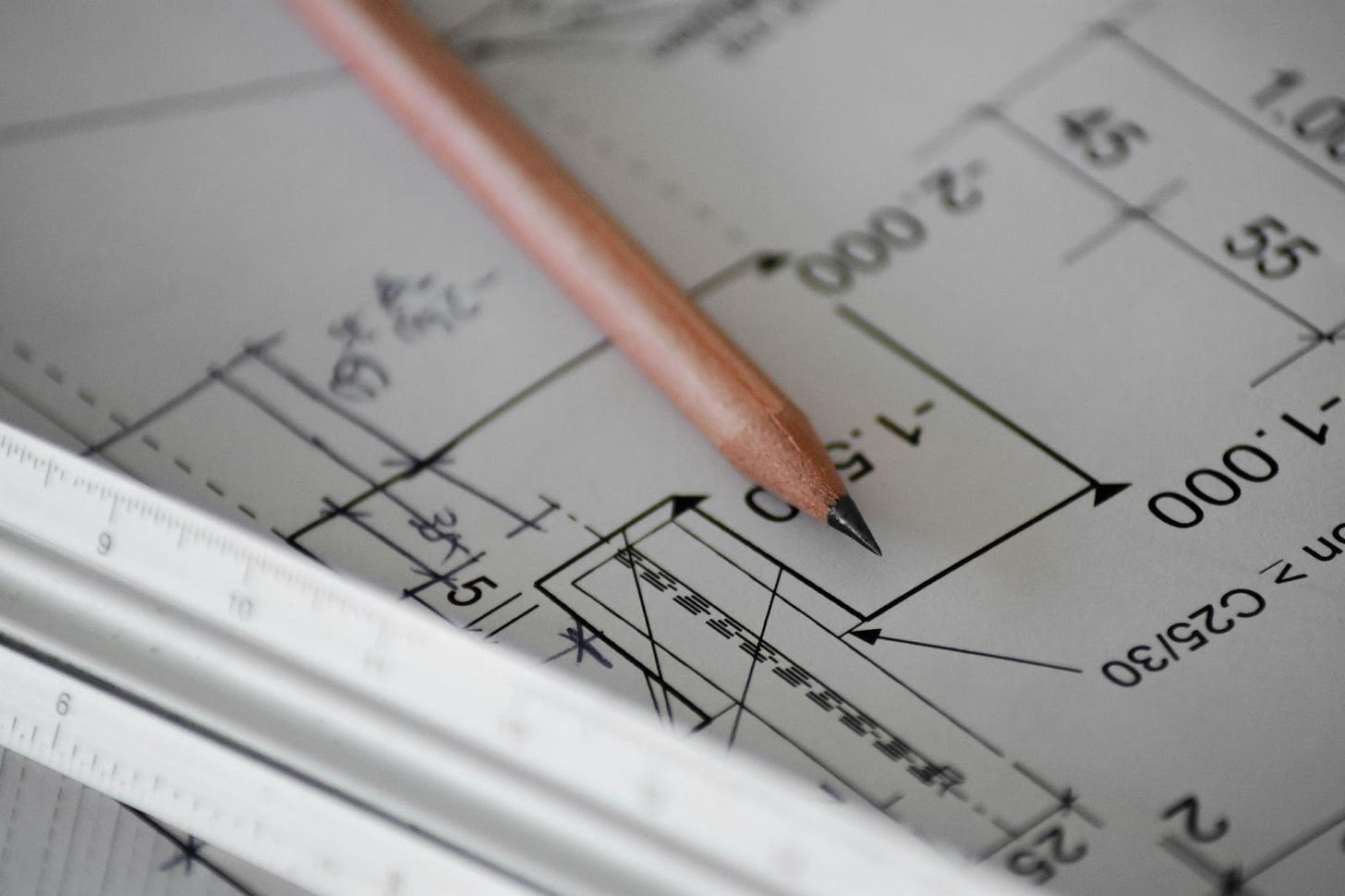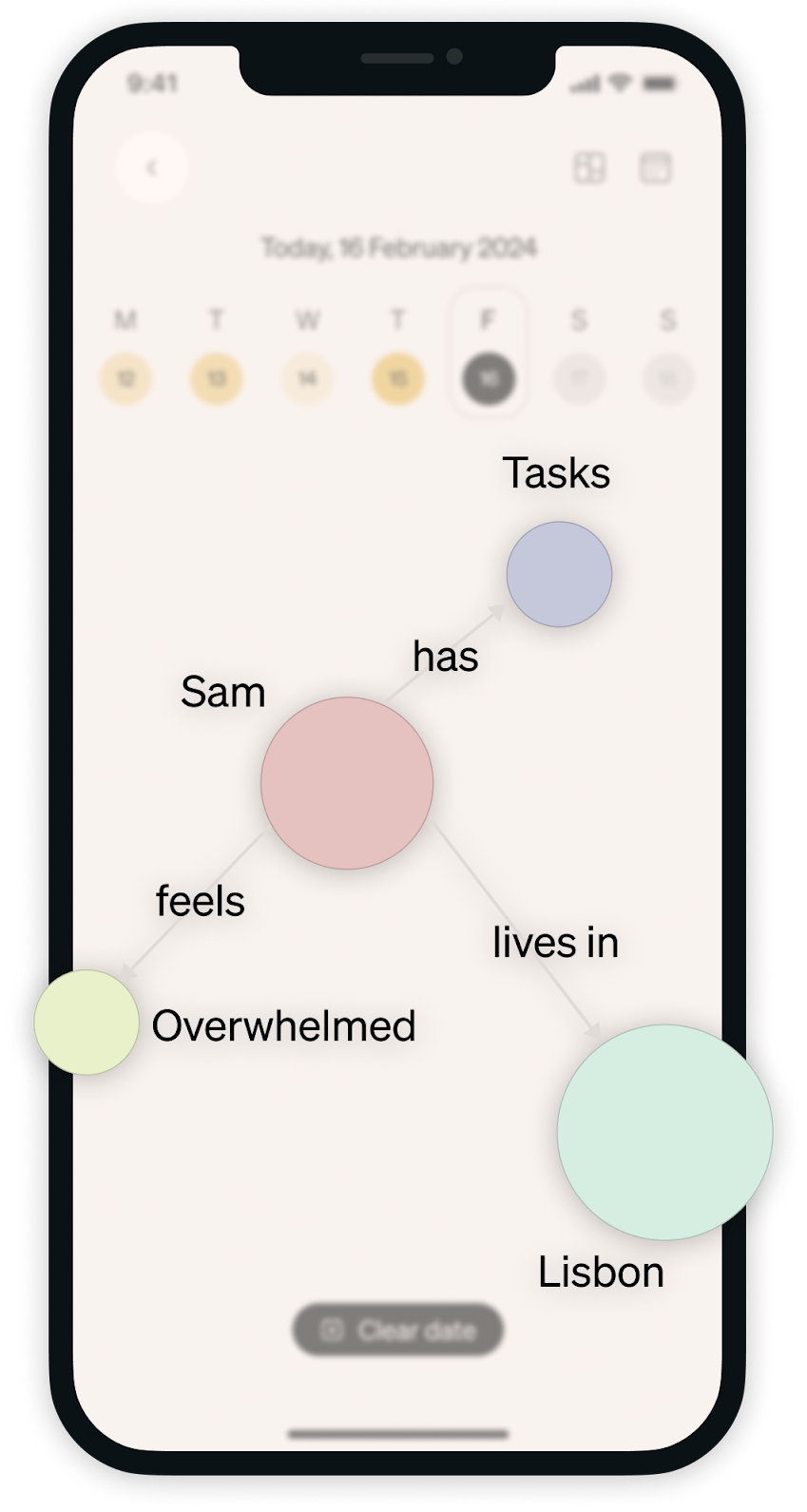How to Improve Self-Evaluation for Better Personal and Professional Growth
Self-evaluation is one of the most important reflection exercises. Despite that, it’s still very hard to get right. What does ‘right’ look like, and can AI help?
The performance review process has become increasingly complex in today's workplace. Whether you're preparing for an employee self-assessment, salary negotiation or conducting a self-appraisal of your own performance, looking inwards objectively feels almost impossible sometimes.
From formal performance evaluations where job performance needs assessment, to informal self-reflection about workflow and work ethic, seeing outside objectively can be challenging.
In fact, according to the Harvard Business Review, while 95% of people believe they have strong self-awareness, only 10-15% actually demonstrate true competencies in self-evaluation during behavioral studies. 1
So, how can actual self-awareness be increased to match what many people believe they have?
I’m Yngvi Karlson, Co-Founder of Kin. Born in the Faroe Islands, I’ve spent my career building startups, with two exits along the way, and five years as an active venture capitalist. Now, I’m dedicated to creating Kin, a personal AI people can truly trust.
Follow me on LinkedIn, TikTok and X
Read as I cover some performance management skills, and how AI like Kin can help support their growth, in the following sections:
Understanding the Evaluation Process
Why Self-Evaluation is Important
Barriers to Self-Evaluation
The Five Core Areas of Self-Evaluation
How to Write Effective Self-Evaluations
How Technology Enhances Self-Evaluation
Get Started with Your AI Companion Today
There are also some example self-evaluation questions at the end, so stay tuned!
Understanding the Evaluation Process
Self-evaluation, also known as self-review, self-appraisal, or self-assessment, is more than just casual self-reflection—it's a systematic process of assessing individual performance against specific KPIs and competencies, either outlined in a job description, or of personal choosing.
In short, it’s a way to determine how well someone is meeting their goals.
While a professional performance evaluation might focus on measurable metrics of job performance like project management outcomes or leadership skills development, personal self-evaluation delves into areas of improvement in behavioral patterns, decision-making abilities, and interactions with friends, family, and team members.
Professional Self-Evaluations
For a professional evaluation, employees are often asked to consider a review period of the last year's achievements, though some organizations’ performance review processes may be shorter- or longer-term than the past year.
Human Resources departments often provide a template to guide the employee self-evaluation process, which ensures company-critical questions are answered by team members while allowing for constructive feedback about individual skill sets and core competencies.
This process is usually accompanied by regular one-on-one meetings with supervisors throughout the year to discuss progress, identify any discrepancies between self-assessment and manager perception, and plan new projects that align with demonstrated strengths.
Personal Self-Evaluations
On the other hand, personal self-evaluations are often undertaken independently—though some companies do ask their employees to do them. These measure how well personal goals are being reached, often in the context of personal life, such as managing anxiety, learning a new hobby, or building a new habit.
Templates are available online, but given the personal nature of these evaluations, they don’t need to use standardized worksheets.
People are Professional and Personal
These two domains—professional and personal evaluation—aren't separate, but instead are inherently connected. According to McKinsey, executives who demonstrate high levels of self-awareness of their personal actions and goals are up to four times more likely to demonstrate strong leadership capabilities. 2
This connection exists because the core competencies built by proper self-evaluation, like problem-solving skills, a positive attitude, and teamwork, benefit both areas of life.
Why Self-Evaluation is Important
Self-evaluations help people understand how well they’re doing the things they want to be doing, and how they can improve. This makes it much easier for people to adjust their behavior to reach their goals, whether those goals are professional or personal.
As such, self-evaluations build the following skills:
Self-Awareness: Understanding personal strengths, weaknesses, and patterns is perhaps the biggest benefit of self-evaluation.
Increased Accountability: Regular evaluation helps show personal control over growth, encouraging people to harness it.
Decision-Making: Regular self-reflection increases self-awareness, which makes appropriate choices about career paths and personal development easier to identify.
Better Goal Setting: Clear self-assessment leads to more realistic and achievable objectives based on skill, money, and time levels.
Stronger Relationships: Greater self-awareness often leads to better communication and collaboration with colleagues, friends, and family alike.
Stress Reduction: Understanding personal patterns and triggers, and having plans in place to support them, helps manage day-to-day pressures more effectively.
The Impact on Professional Growth
In professional settings, strong self-evaluation skills can dramatically impact career trajectory. According to Gallup's 2023 State of the Global Workplace report, employees who regularly participate in self-evaluation and feedback processes are 3.6 times more likely to be engaged at work and 2.5 times more likely to report being satisfied with their career progression. 3
This advantage comes from multiple factors. Self-aware professionals better understand their strengths and areas of improvement, leading to more targeted skill development. They're also more receptive to constructive feedback during one-on-one meetings, as they've developed the ability to process criticism constructively. Additionally, their enhanced self-awareness often translates to better project management and more effective workplace relationships.
The impact extends to workflow optimization as well. When employees regularly evaluate their processes and competencies, they can better identify inefficiencies and propose improvements.
This proactive approach not only enhances individual performance, but as employee engagement and retention are crucial metrics for organizational success today, employee self-awareness benefits companies by maintaining productive workflows and reducing turnover through better job satisfaction.
Barriers to Self-Evaluation
Because self-evaluation is done by oneself, it faces a unique set of challenges.
Discrepancies between perception and reality can lead to confirmation bias, causing people to seek information that supports their existing beliefs about their own work, and ignore information that proves them wrong.
Similarly, emotional attachment to outcomes can cloud judgment of overall performance, as people seek to protect who they love and punish who they don’t.
And perhaps most challenging, people often lack the structured approach needed to make self-assessment a consistent, productive practice.
The Five Core Areas of Self-Evaluation
Before diving into actionable guides, it's important to understand the five key areas that a comprehensive, high-performance self-evaluation should cover:
1. Skills and Knowledge: Assess both technical capabilities and soft skills, identifying areas of expertise and knowledge gaps. For example, a marketing manager might evaluate their proficiency in digital analytics tools, alongside their team leadership abilities and understanding of their actions.
2. Performance and Achievements: Review specific accomplishments against set goals, including both quantitative metrics (like sales numbers or amount of social outings) and qualitative outcomes (such as improved team dynamics or stronger relationships).
3. Habits and Behaviors: Examine daily practices, time management skills, collaboration styles, and both professional and personal conduct. This might include analyzing how a deadline is met, and what continuous learning strategy is being used, if any.
4. Personal Growth and Development: Evaluate progress in career development goals, new skill acquisition, and both professional and personal relationships. Consider both formal learning opportunities and mentoring experiences, whether as a mentor or mentee. This includes assessing how effectively you've engaged with mentoring relationships and contributed to others' personal and professional development while advancing your own.
5. Values and Satisfaction: Assess alignment between personal values, personal actions, and current role; overall job satisfaction; and work-life balance. This includes examining whether a current position and trajectory matches long-term career goals, or whether recent actions build the relationships desired with others.
Other Essential Components of Effective Self-Evaluation
There are a few more important points to make:
Objectivity is crucial but challenging. The key is focusing on observable behaviors and measurable outcomes rather than interpretations. Instead of thinking "I'm bad at presentations," consider the specific aspects that prompt that thought, like "My last three presentations went over time by an average of 10 minutes." This will make it easier to tackle.
Evidence-based assessment requires collecting concrete data. This might mean tracking project completion times at work, or monitoring emotional responses to specific situations in personal life.
Self-evaluations are most useful when accompanied by effective goal-setting and dedication to creating a plan to reach those goals. The evaluations help people understand where they are in that plan, and what they need to adjust to advance further.
How to Write Effective Self-Evaluations
Now, as promised. Writing a self-evaluation for any purpose requires a structured approach, similar to the one below:
Decide What’s Being Evaluated: Whether it's professional performance, or a personal goal to learn crochet, ensure what’s being examined is clear.
Start with Data: Gather concrete examples and metrics of personal and/or professional performance. Include project outcomes, feedback received, conversations, and situations that feel indicative of performance.
Use the STAR Method: When describing achievements, use the Situation, Task, Action, Result format to make it easier to understand. For example:
"When our team faced a 20% decline in social media engagement (Situation), I was tasked with improving our content strategy (Task). I implemented a new content calendar and engagement tracking system (Action), resulting in a 45% increase in engagement over three months (Result)."
Be Specific and Honest: Instead of evaluating communication skills as ‘good’, write down the reasoning behind that—e.g. '“led 12 client presentations, was well-received by 9, and had three complain about the talking speed and lack of slide detail.”
Consider Meanings: Self-evaluations exist to promote thought. Consider why things went the way they did, and how the good things can be maintained and improved, as well as how the bad things can be avoided.
Building a Self-Evaluation Routine
Second only to a good evaluation structure is a good evaluation routine. Without regular revisiting and re-application, self-evaluations are not being used to their full potential.
Start by choosing specific times for evaluation—perhaps Sunday evenings for weekly reviews and the last day of each month for broader assessments. Based on the goal progress being evaluated, create templates or frameworks to guide these sessions,
Regular one-on-one meetings with mentors or supervisors should be considered if possible, too. These can help identify any discrepancies between self-perception and reality, while also offering opportunities to discuss new projects and learning opportunities.
For more tips on building routines, check out our guides on time management and effective goal-setting guides.
How Technology Enhances Self-Evaluation
Today, technology has made effective and regular self-evaluation easier than ever. Phones and laptops mean digital calendars, reminders, and AI assistants can track events and provide reminders at any time or place, while AI tools like AI chatbots and personal AI can prompt and even assist in self-evaluation based on a user’s data.
Online project management tools can even allow tracking of personal and professional progress in real-time across remote teams, so anyone can understand their workflow from anywhere.
How Personal AI like Kin Supports Self-Evaluation
Artificial Intelligence has emerged as a particularly powerful tool for self-evaluation, and we feel Kin is a great example of that.
Kin's ability to provide emotionally intelligent conversation and guidance for its users during self-evaluation makes these introspections less biased, judgment-free, and more profound, while its advanced memory system recalls every past situation and self-evaluation shared with it.
This allows Kin to build a comprehensive, visual picture of someone’s personality, and, unlike traditional journaling or note-taking apps, Kin actively evaluates this information against a user’s stated goals to estimate progress, identify trends, provide insights, and highlight potential areas and solutions for improvement.
Users can even ask Kin to create notification reminders for things they might forget, or the next time they’d like to evaluate themselves.
And, all of this happens with strict data privacy, as Kin stores and processes information local-first. This means it stores everything on the user’s device unless a process must use a Kin-approved third party in the cloud. That ensures that the personal data and insights Kin stores remain secure, and you can trust that it’s safe.
Get Started with Your AI Companion Today
Sound helpful? Download the Kin app here, fill in the following message, and send it to Kin to start improving your self-evaluations:
“Hey, Kin. I’m aiming to _____, and I’m wondering how to evaluate my progress. What do you need to know to help me?”
Sample Self-Evaluation Questions
Professional Performance:
- What were my most significant achievements during this period?
- How did I contribute to company/personal goals?
- Which projects or tasks challenged me most, and how did I handle them?
- How have I improved my workflow since the last evaluation?
- What new projects have I taken on, and what were the outcomes?
Skill Development:
- What new skills or knowledge did I acquire?
- How have I applied learning opportunities to my work?
- Which areas need further development?
- How have I enhanced my core competencies?
- What mentoring relationships have I developed or maintained?
Behavioral Assessment:
- How effectively do I collaborate with others?
- How do I handle stress and deadlines?
- What feedback patterns have I noticed from colleagues and supervisors?
- How do I demonstrate a good work ethic and positive attitude?
- How have my problem-solving skills improved?
Future Focus:
- What are my key goals for the next period?
- What resources or support do I need to achieve these goals?
- How do my current activities align with my long-term career objectives?
- What new projects would I like to take on?
- How can I further optimize my workflow?
Eurich, T. 2018. ‘Working with People Who Aren’t Self-Aware’. hbr.org. Available at: https://hbr.org/2018/10/working-with-people-who-arent-self-aware [Accessed 01/08/25].
Anon. 2015. ‘When to change how you lead’. www.mckinsey.com. Available at: https://www.mckinsey.com/featured-insights/leadership/when-to-change-how-you-lead [Accessed 01/08/25]
McLain, D. and Nelson, B. 2022. ‘How Fast Feedback Fuels Performance’. Gallup.com. Available at: https://www.gallup.com/workplace/357764/fast-feedback-fuels-performance.aspx [Accessed 01/08/25]












